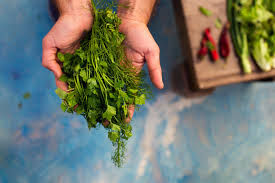.png)

JLM Food Rescuers
Creating a sustainable and community-driven urban food system
Us in Numbers:


1300
Tons of food
rescued


450
Volunteers


18,000
People visited our Community Food Center


9,900
Students learned about food sustainability
_edited.jpg)
.jpeg)
1,300
Families receive food through our networks
Our Story
Welcome to Jerusalem Food Rescuers. We’re confronting one of the greatest challenges of our time: food waste. In Israel, about 40% of edible food—2.5 million tons every year—is discarded. Half of it could be saved. In a city where one in five residents struggles with food insecurity, this waste is both environmentally destructive and ethically indefensible.
We reclaim this lost abundance and transform it into the foundation of a more resilient, equitable, and collaborative urban food system. Together with residents, businesses, municipal partners, and organizations, we’re building innovative solutions that cut waste, strengthen communities, and restore our relationship with food.
Join us in creating a Jerusalem where food is valued, shared, and never wasted.

Food Rescue: A City-Wide Solution
Ever wondered what happens to surplus produce at the Jerusalem wholesale market?
Since 2019, we’ve built a direct partnership with market vendors in the wholesale market of Jerusalem, allowing us to rescue and redistribute fresh, high-quality produce that would otherwise be discarded.
Our volunteer-led operations run daily, collecting food, sorting it, and distributing it via our refrigerated van and cars.
We’re also working with the municipality and policymakers to scale this model into the country’s first comprehensive food rescue program.
Check out some of our distribution spots:
Community Based Food Security
We believe that food security isn’t just about giving food away—it’s about rebuilding relationships with food, community, and dignity.
That’s why we’re moving beyond traditional food aid. We developed a pop-up market model, run by and for the community. Here’s how it's different:
✔ Anyone can participate, regardless of income, reducing stigma.
✔ Markets are led by local community members, turning recipients into decision-makers.
✔ Surplus food is a tool for empowerment, not just assistance - workshops and events run alongside the markets, teaching food preservation, cooking, and sustainability.
In addition to 7 markets, we distribute rescued food through 20 grassroots networks and NGOs, reaching East Jerusalemites, asylum seekers, ultra-Orthodox single mothers, the Domari community, and homebound elderly.
We’re building self-sustaining food networks where rescued food becomes a shared community resource—not a stopgap or a handout.
Edible Education: Changing the Next Generation’s Relationship with Food
We believe schools should be at the heart of the food revolution.
Through our Edible Education program, we work with schools, teachers, and students to integrate food literacy, sustainability, and climate action into daily learning.
We aim to turn school kitchens and gardens into living classrooms, where students grow, cook, and share food—learning nutrition, sustainability, and leadership along the way.
We believe that children should learn about food by working with it, not just reading about it—so we’re training educators and developing models that can be scaled.
Our Community Food Center:
A Sustainable Culinary Space
From workshops to tours, lectures to school programs, we're committed to engaging as many people as possible by sharing perfectly good, fresh rescued food, demonstrating creative cooking with ingredients readily available at home, teaching preservation and fermentation techniques, and showcasing the wholesale market through walking tours.
Whether we’ve received 1 ton of tomatoes, 300 kilos of pomegranates, or green garlic stalks - our kitchen is always experimenting to cook up whatever the market brings to us. With a dynamic, plant-based menu that mirrors the ever-changing market, we turn rescued ingredients into unique and delicious meals, showcasing the creativity born from minimizing waste.
Located in the heart of Jerusalem’s wholesale market, our Community Food Center and Logistics Hub hosts team-building sessions, delegations, birthdays, and b’nai mitzvahs. We’ve also catered museum exhibitions and private events—with every meal built around surplus, rescued produce and a seasonal, sustainable menu. Check out our event catalog, below, to plan your own one-of-a-kind food experience.
This report, conducted for the Ministry of Environmental Affairs, explores urban food rescue models from around the world, highlighting best practices and innovative approaches from cities like New York, Berlin, and Athens. By analyzing policy frameworks, logistical strategies, and community-driven initiatives, we provide key insights for developing a more sustainable and inclusive urban food system in Jerusalem. Our findings serve as a roadmap for integrating food rescue into city planning, ensuring that surplus food becomes a resource for strengthening communities rather than going to waste.













